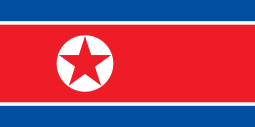The North Korean Conundrum
The United States (US) Secretary of State Mr Rex Tillerson has just concluded his first East Asia trip with visits to Japan, South Korea and China. Today, the major security challenge which the new Trump administration faces, apart from the Islamic terrorism, is brazen approach of North Korea. Particularly, during his campaign phase Donald Trump had indicated that he would like to take a more business like attitude in regards to this region and is not keen to guarantee military cover to this region free of cost. Little did he realise that only bragging right-wing and businessman mentality would not guaranty him greatness. Today, there is a country which is seriously preparing to make Hiroshima and Nagasaki look paltry and threatening South Korea, Japan and the US of annihilation. Now, this is the reason why he was forced to send his Secretary of State to visit the East Asian region in order to find ways to stop North Korea’s steady march towards the use of nuclear weapons. But, it appears that beyond discussions and few political statements noting much has emerged from Tillerson’s meetings.
Tillerson has accepted that last two decades of policy to control North Korea has failed. He has not articulated any new policy in this regard which clearly indicates that there are almost no options available to tame North Korea. Even today there is major global reliance on China to find the solution for the North Korean riddle and it appears that either China is not serious to resolve the crisis or that North Korea is not under their total control. From 2006 to 2016, North Korea has already conducted five nuclear tests. It has also carried out few missile tests during this period. Since the beginning of 2017, North Korea has conducted five ballistic missile tests and has demonstrated its medium range missile launch capability. At present, probably they are not in a position to reach the continental United States, but are definitely capable of attacking the US installations in the Indian Ocean region. Mr Tillerson has also indicated that military option against North Korea should not be ruled out. However, knowing the military preparedness of North Korea and more importantly their capability to respond irresponsibly may limit the US military options.
North Korean threat has made regional powers like South Korea and Japan very vulnerable. Today, North Korea is able to sustain because of their closeness with China. For China, North Korea is an important pawn. The way China uses Pakistan to keep India occupied politically and militarily, similarly it is using North Korea to checkmate US, Japan and South Korea. Each of these four powers has different interests in resolving the North Korean riddle. Also, there are varying domestic compulsions for these states. Today, Japan and South Korea want the US to remain committed on its involvement in the region owing to the nature of threat. Interestingly, the Chinese have openly expressed their unhappiness with regards to the North Korean nuclear and missile programmes, but, at the same time, are not following the sanctions regime put in place by the United Nations to punish North Korea. For China, North Korea is of strategic importance. China cannot allow North Korea to fail because that would lead to a major refugee problem for them and severely dent their developmental as well as strategic policies. Today China is much concerned about the deployment of the US Terminal High Altitude Area Defence (THAAD) anti-missile system to secure South Korea. They fear that the US military presence in South Korea with the specialised radar systems would eventually lead to the collection of intelligence from Chinese region. Owing to the brazen attitude of North Korea, Japan too is requesting the US to deploy such a system for itself too.
Mainly owing to the North Korean threat and assertive Chinese attitude, the Japanese foreign policy and security perceptions have undergone a perceptible and steady change over the past decade. Particularly post 2014, a shift in Japan’s military strategies has become more visible. From an isolated and pacifistic defence posture, Japan is seen taking a more dynamic military posture -- one that is based on bilateral and multilateral relationships. On 17 March 2017, Japan launched a latest spy satellite. Interestingly, Japan had started making its military overturns by putting spy satellites into orbit in 2003 after North Korea fired a mid-range ballistic missile over the Japanese mainland and into the western Pacific in 1998.
Japan has not invested in the armed forces because they have US military cover guarding their security in the post Second World War period. Japan signed a treaty of Mutual Cooperation and Security with the US in 1952. However, during last two/three years Japanese have adopted a policy change and now they have legitimized the concept of collective self-defence. It must be noted that this shift is not only because of the North Korean threat, but also owing to the overall political tensions in East Asia.
Unfortunately, the bilateral relationship between South Korea and Japan is seen to carry the ‘World War II baggage’. The issue of Korean women who were forced into sexual slavery for Japanese soldiers during World War II continues to remain an extremely emotional issue. Just two months back, Japan recalled its envoy to South Korea owing to this issue. Luckily, in Nov 2016, South Korea and Japan signed a military intelligence pact to share sensitive information on the threat posed by North Korea's missile and nuclear activities. It is important for these two states to move beyond the emotional issues and address the North Korean threat jointly along with the US. The North Korean issue is going to be the first serious geostrategic test for the Trump administration. Today, Trump cannot just afford to carry on with his anti-China rhetoric. He would be required to engage China if he has to resolve the North Korean riddle.
